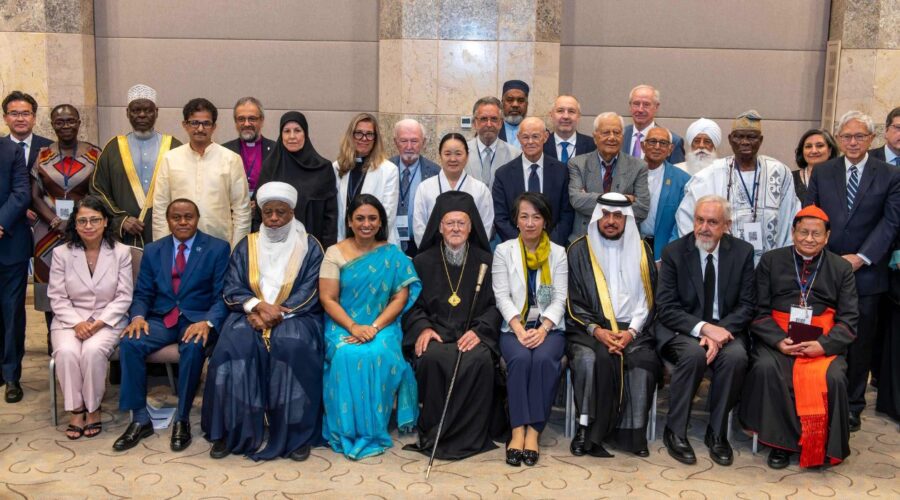Religions for Peace World Council in Istanbul to Restore the Sacred in a Time of Global Crisis
August 5, 2025Is there still room for the sacred in a time of war, economic collapse, and humanitarian catastrophe? Do faiths still have a voice in the tragedies of Gaza, Ukraine, Sudan—or in the uncharted territories of artificial intelligence and the crushing burden of global debt?
These urgent questions brought together over 60 religious leaders and members of the World Council of Religions for Peace in Istanbul on July 29. Their mission: to forge a new framework, the Shared Sacred Flourishing, that responds to the crises of our time and counters the reductive materialism that threatens human dignity and planetary well-being.

The Council affirmed that the Sacred must be restored as the foundation of all reality—honoring the dignity of every human being and embracing the Earth, its ecosystems, and societies as essential to human flourishing. His All-Holiness Ecumenical Patriarch Bartholomew opened the gathering with a powerful call to action, emphasizing that interreligious dialogue is not a luxury but “an inexorable necessity, an act of collective resistance” against the fragmentation of meaning in the modern world.
Faith Communities Advocates for Debt Cancellation and AI governance
Leaders from Baha’i, Buddhist, Christian, Hindu, Indigenous, Jewish, Muslim, Sikh, and Zoroastrian traditions engaged in deep dialogue on the moral and spiritual dimensions of global challenges. They advocate for strategic debt cancellation, equitable taxation, and financial transparency, highlighting the destabilizing impact of cryptocurrencies and the need for regulation to prevent money laundering and ensure financial stability. The Council warned against the abstraction driving AI development, which risks dehumanizing individuals and enabling structural injustice. For the religious leaders in Istanbul, faith communities must play a central role in AI governance, particularly concerning the use of AI in national wars and its potential to dehumanize, ensuring that technological advancement serves humanity rather than undermines it.
A Unified Call for Peace and Justice
Dr. Francis Kuria, Secretary General of Religions for Peace, urged the Council to be “one voice to defend peace, a loud voice to stop injustice, poverty, and brutality, and a visionary voice to navigate the space of AI and restore the sacred, the love a ground where everyone can flourish.” In their final statement, the leaders committed to stand “as one global movement” for the people of Gaza, Ukraine, Myanmar, Sudan, and all communities affected by conflict and war and to advocate tirelessly for peace, debt cancellation and equitable economic systems. They pledged to work relentlessly for a world grounded in the sacred—a world where humanity and the Earth can heal and flourish together.
Shared Sacred Flourishing: A New Vision for Global Transformation _ World Council Statement (2904 downloads )